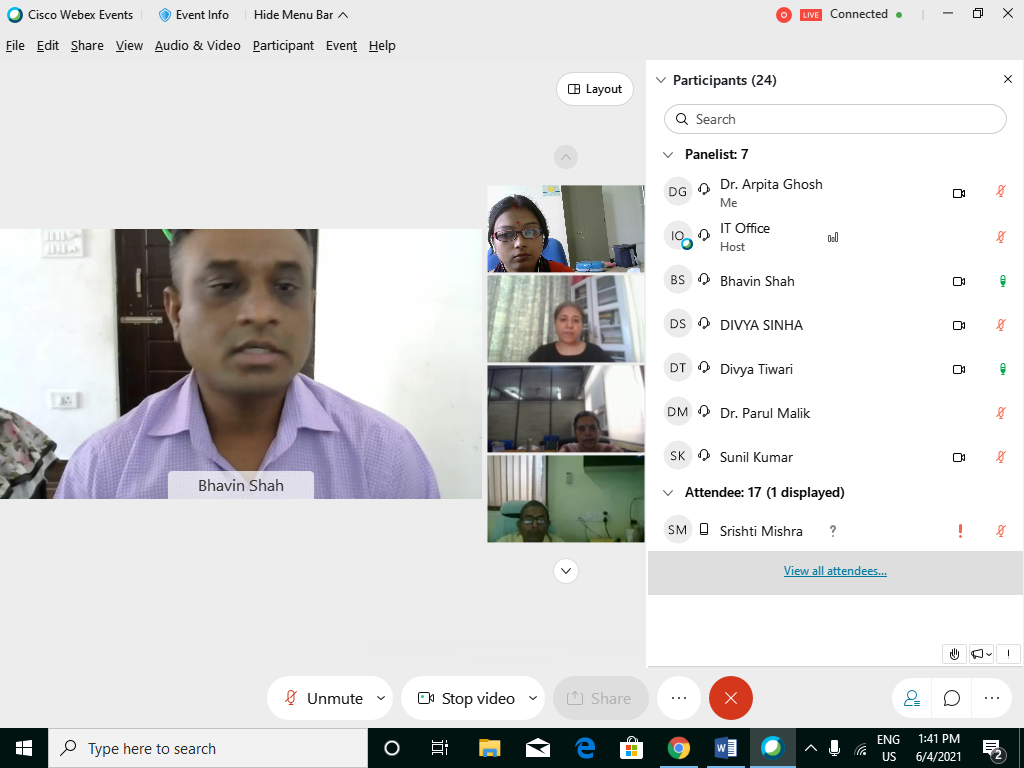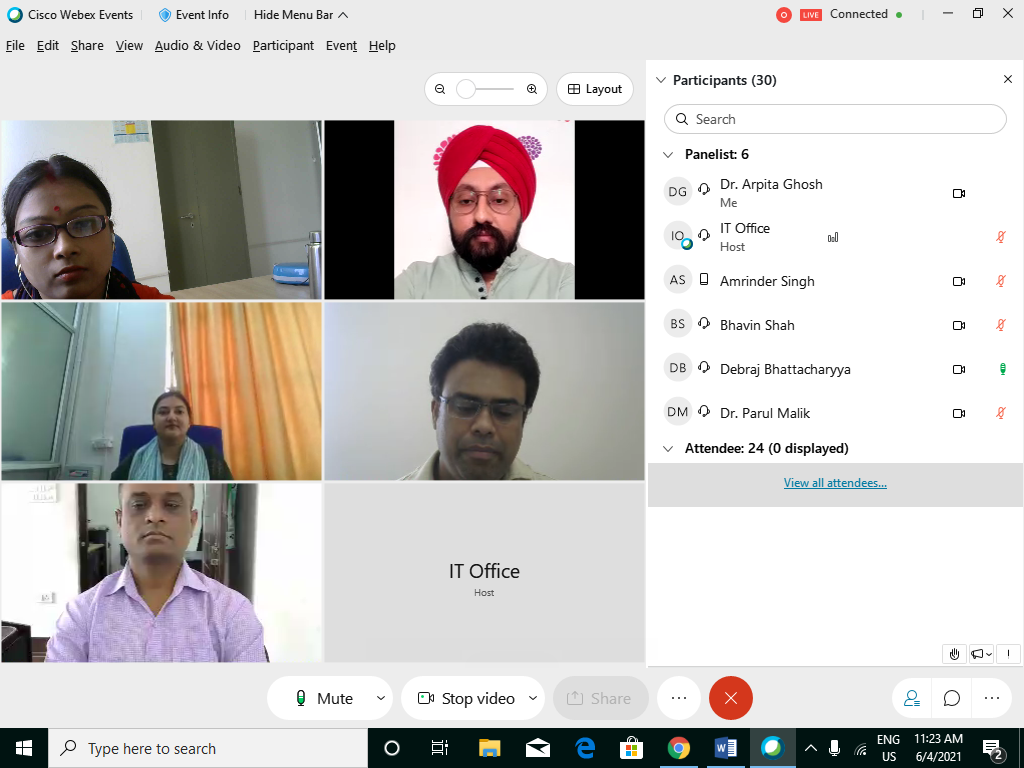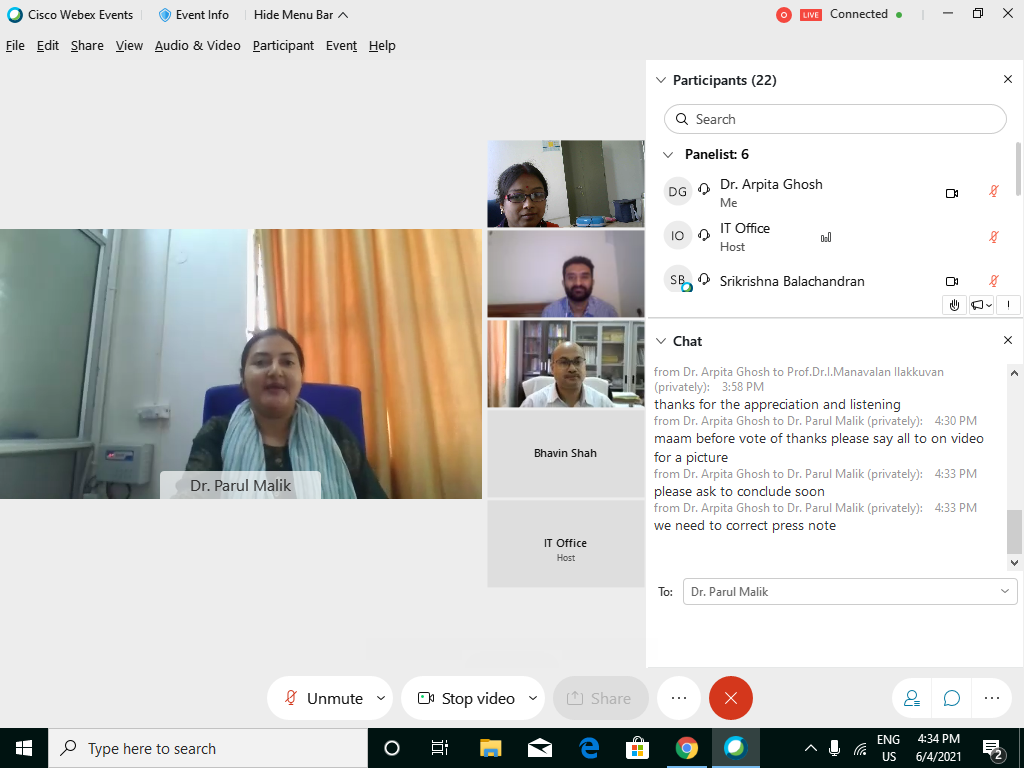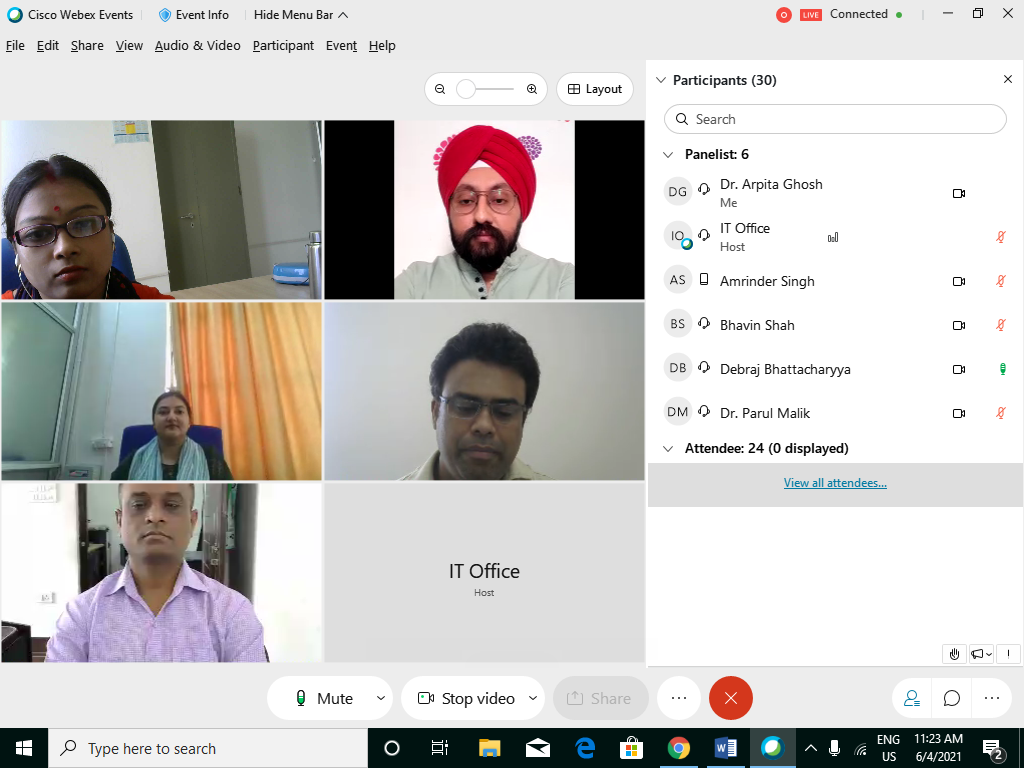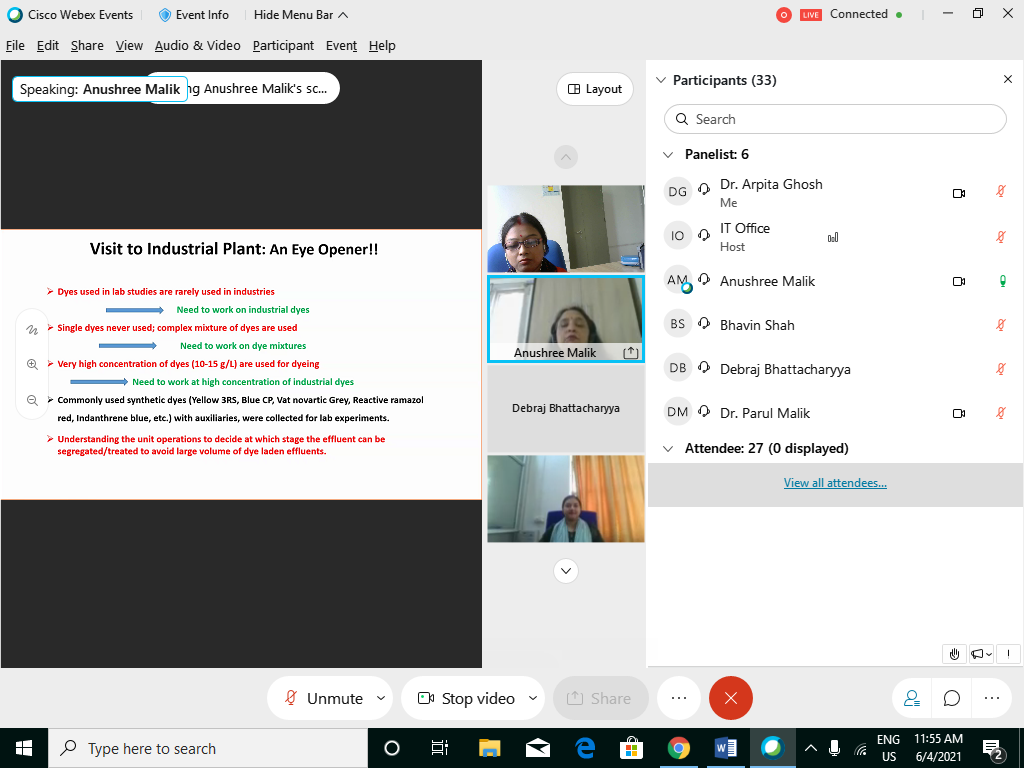IIM SIRMAUR ORGANIZED NATIONAL SEMINAR ON WORLD ENVIRONMENT DAY
Centre for Sustainability and Environmental Management (CSEM), IIM Sirmaur has organized an online day-long seminar titled Only one Earth under the able guidance of Professor. Neelu Rohmetra, Director IIM Sirmaur. Centre for Sustainability & Environmental Management (CSEM) at IIM Sirmaur has been established in November 2019 as an initiative of Professor Neelu Rohmetra to promote active research in the field of environment sustainability and steer institute's efforts in the similar direction in effective and systematic manner. The seminar is being conducted on the occasion of World Environment Day which is an international event celebrated annually around the globe on 5th June to highlight the significance of healthy and green environment for human lives. The convener of the seminar was Prof. Arpita Ghosh (convener of the seminar and CSEM coordinator) and Prof. Parul Malik (co- convener of the seminar and CSEM co coordinator). The seminar was conducted in three sessions on themes across wastewater treatment, solid waste management and plastic waste management. Prof. Arpita Ghosh delivered the welcome address. More than 100 participants registered for the event. She apprised the audience about the damaging coral reefs, global reefs, melting glaciers and the need for the ecosystem restoration to keep the rise in global temperatures below 2?.
Prof Amrinder Singh addressed the gathering in the inaugural session. He highlighted the sustainability aspects being taken into consideration while construction of the new IIM Sirmaur permanent campus focussing on GRIHA ratings, Rain water harvesting and Solid waste management.
The first keynote speaker for Panel Discussion on Wastewater Treatment was Prof. Anushree Malik, Head CRTD, IIT Delhi who shed light on complex problems and diverse consortium approach for decentralised treatment technology for industrial effluents of textile industries. Her team have developed mycotablets and mycocapsules for treating different effluents from textile industries and have been awarded several patents for the prototypes and technologies developed. The subsequent speaker Dr. Debraj Bhattacharya, Associate Professor, Environmental Engg, IIT Hyderabad drew attention towards domestic waste water treatment using microalgae and bacteria and highlighted the importance of waste water treatment for environmental protection. He explained about pilot scale system of anaerobic digestion as a method of managing food and garden wastes generated in the campus of IIT Hyderabad.
Prof Bhavin Shah moderated the next panel discussion on Solid Waste Management and gave the background of the theme. Dr. Divya Tiwari, Principal Scientist & Advisor, Saahas spoke about the key questions related to Waste management in India and shed light upon waste to energy plants, and the drawbacks of burning waste is not a smart approach in Indian context. She addressed global and Indian aspects of recycling and the technical, economic and environmental challenges associated with it.
She underscored the importance of switching from the linear economy towards a circular economy for responsible waste management for a sustainable future. Businesses and Government policies should be working towards developing a circular economy. Dr. Sunil Kumar, Humboldt Senior Fellow, Senior Principal Scientist & Head, Waste Reprocessing Division, CSIR-NEERI Nagpur continued the session and talked about Solid waste management (SWM )issues and challenges for a Global and Indian perspective. He stressed about environmental health, socio-economic, infrastructure and financial issues pertaining to SWM. He also apprised about status of waste to energy plants and projects in India. The last speaker for the session was Smt. Divya Sinha, Scientist E, Additional Director & Incharge UPC II Div, CPCB. She addressed the legal framework related to SWM, CPCB's mandate governing the SWM rules and made the participants aware about the components of SWM.
Prof Parul Malik of IIM Sirmaur set forth the background for the final panel discussion of the seminar on Plastic waste Management. Prof. Kaustubha Mohanty, Dept. of chemical engg. IIT Guwahati spoke about microplastics and the process of removal of microplastics from seawater and salts. He further talked about sources of microplastics and its impact on human health and how these microplastics reaches into our food-chain through sea food, salt and sea water. Mr. Ashish Jain, Founder & Director, IPCA talked about advantages and applications of plastic as a resource. He briefed about the MOEFCC labelling guideline for plastic producers to properly label plastics them in the 7 identified categories for easier recycling processes. He urged to reduce per capita plastic waste generation and told around 80% of plastic are recyclable in nature on the condition it should be collected properly. The final speaker of the seminar was Mr. Srikrishna Balchandran, Program Manager, Project Prithvi-Plastic Recycling UNDP India. He informed that PWM and circular economy space has quite a scope to contribute to the country and the economy. He talked about various UNDP projects of PWM all around the world to identify the solutions to deal with the issue of PWM. The seminar concluded with a vote of thanks by Dr. Parul Malik.
